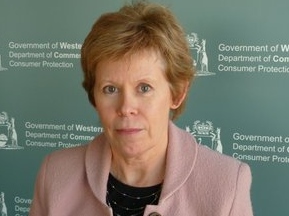
Travel company fined $6000 over phone sales
A Queensland-based travel company which failed to notify consumers of a cooling off period for phone sales was fined $6000 and ordered to pay costs of $1282 by the Perth Magistrates Court.
Beachbreak Holidays Australia P/L, trading as Ezy Flights and Up’n’Go Travel, sold travel vouchers by cold calling consumers and offering discounted packages for flights and accommodation. The company did not notify consumers about the ten business day cooling off period, as required by the unsolicited trading provisions of the Australian Consumer Law.
In May 2012, a consumer from Korbel received a call from a sales representative from Ezy Flights and agreed to purchase a package of four flights and ten nights’ accommodation. No information about the cooling off period was given during the phone conversation.
Later that day the consumer received an email attaching the invoice, vouchers and agreement document. The agreement document did not display, on its front page, information about the consumer’s right to terminate the agreement within the cooling off period and the agreement included a clause that could be void. The company was also required to include a notice that the consumer could use to terminate the contract, which it failed to do. When the consumer terminated the agreement, Beachbreak did not immediately refund her money, as required by the ACL.
In July 2013, a consumer from Kinross received a call from a sales representative from Up’n’Go Travel and agreed to purchase travel vouchers, but no information about the cooling off period was given.
Similarly the consumer received an email later that day which included the vouchers, an invoice and the agreement document. The agreement document did not display prominently, on its front page, information about the consumer’s rights to terminate the agreement and the agreement included a provision that would be void. The notice enabling the consumer to terminate the contract was also not included. When the consumer terminated the agreement, Beachbreak did not immediately refund her money, as required by the ACL.
Commissioner for consumer protection Anne Driscoll said the consumers in this case wanted to terminate the agreement but had difficulty in getting a refund. “The essence of the unsolicited, or door to door trading, laws is to give consumers who are caught by surprise the opportunity to review their decision to purchase and the opportunity to cancel the contract if they choose to do so,” Ms Driscoll said.
“Traders who market their products or services by cold calling or door to door sales are obliged to ensure that the consumers know their rights with regard to the cooling off period and could face prosecution if they fail to comply with the ACL with regard to unsolicited sales.
“By not accepting payment or supplying goods and services during the cooling off period, the contract can be easily terminated if the consumers change their mind. Companies should not make it difficult for consumers to cancel contracts made under these circumstances and will be denying the consumer’s legal rights under the ACL.”







